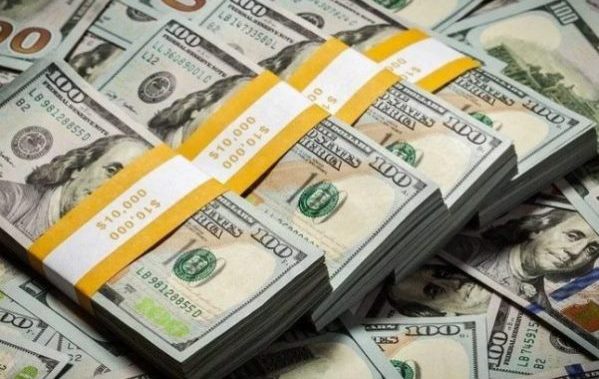Nigeria’s external reserves have increased to $37.05 billion as of July 18, 2024. This amounts to $2.35 billion or 6.7 per cent increase from $34.70 billion in June 2024.
This was revealed by the Central Bank of Nigeria (CBN), Dr Olayemi Cardoso, during a press briefing at the end of the 296th Monetary Policy Committee (MPC) meeting in Abuja on Tuesday, 23rd July 2024.
Join our WhatsApp ChannelREAD ALSO: Nigeria’s External Reserves Rises To $34bn, Highest Since March
“As of July 18, 2024, external reserves stood at US$37.05 billion, compared with US$34.70 billion as of June 2024. This represents eleven (11) months of import cover for goods and services,”part of the communique issued by the CBN governor read.
Prime Business Africa observes that this increase is the highest in the past 17 months.
Cardoso said the MPC observed that the latest increase in the level of external reserves would further build confidence for a more stable exchange rate and therefore recommended that the bank should explore available avenues to improve inflows, especially through diaspora remittances.
“The Committee noted that the increase in the level of external reserves would further build confidence for a more stable exchange rate and thus urged the Bank to explore available avenues to improve inflows, especially through diaspora remittances,” Cardoso stated.
Diaspora remittances, according to the CBN governor, have increased to $2.34 billion in 2024 compared to $1.8 billion in 2023, while Forex inflows have risen to $38.88 billion from $37.93 billion in May 2024.
He said the Committee also noted the increasing convergence of the various foreign exchange segments of the market, adding that it is an “indication of price discovery and improved market efficiency, thus reducing opportunities for arbitrage and speculation.”
Prime Business Africa had reported that the Bank increased the monetary policy rate (MPR), also known as the benchmark interest rate, by 50 basis points from 26.25 per cent to 26.75 per cent in an effort to bring down inflation rate which keeps soaring. The measure is also to stabilise foreign exchange rates and foster a favorable climate for foreign investment.
The foreign reserves had experienced fluctuations in between March and May. It had dropped to a low of $32.10 billion in April, raising concerns about the country’s financial stability. It, however, started picking up again, reaching the current level.
Victor Ezeja is a passionate journalist with seven years of experience writing on economy, politics and energy. He holds a Master's degree in Mass Communication.


















Follow Us